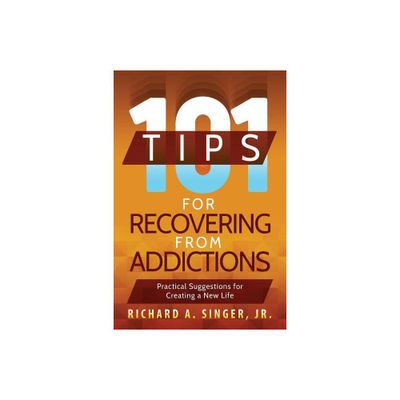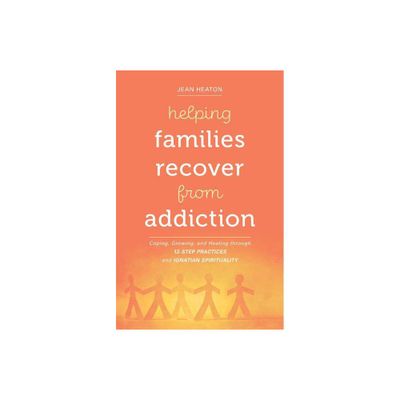Home
The Street-wise Guide to Coping with and Recovering from Addiction
Loading Inventory...
Barnes and Noble
The Street-wise Guide to Coping with and Recovering from Addiction
Current price: $54.95


Barnes and Noble
The Street-wise Guide to Coping with and Recovering from Addiction
Current price: $54.95
Loading Inventory...
Size: Hardcover
*Product Information may vary - to confirm product availability, pricing, and additional information please contact Barnes and Noble
Dr Robert Lefever is one of the leading international specialists on addictions.
He established the very first addiction rehabilitation centre in the UK offering treatment to patients with eating disorders, alcohol or drug problems. He was also the first to treat compulsive gambling, nicotine addiction and workaholism. He identified "Compulsive Helping", when people do too much for others and too little for themselves, as an addictive behaviour and has pioneered its treatment.
Dr Lefever has worked with over 5,000 addicts and their families in the last 25 years and, until recently, ran a busy private medical practice in South Kensington (PROMIS Recovery Centre). He now uses his considerable experience to provide intensive private one-to-one care for individuals and their families.
Everyone KNOWS what addiction is and what should be done for it. But as this book shows, individual experience cannot apply universally. The psychology of denial - telling addicts that they aren't addicted - is the most devastating feature of addiction.
This book offers much practical guidance, with reference to entirely anonymised individual experiences. It also explains the key terminology used in the field.
The entire emphasis of the book is on what works. It also explains why some approaches do not work.
The author shows that treatment will always have to be in 3 phases (in reverse order): abstinence, emotional - not intellectual - therapy and daily relapse prevention by working the Twelve Step Programme first formulated by Alcoholics Anonymous.
Dr Lefever explains specific addictions. These come in 3 clusters: hedonistic, nurturant and relationship. Some addicts have just 1 of these clusters, some two, some all. He shows how patients and their families can take actions to unblock delay. He considers known intervention techniques and family work in tackling compulsive helping, where pain is the great teacher.
This practical book offers important guidance on life in recovery, on real friendships, on spontaneity, creativity and enthusiasm. Dr Lefever also examines the future of addiction treatment, as well as its politics.
He established the very first addiction rehabilitation centre in the UK offering treatment to patients with eating disorders, alcohol or drug problems. He was also the first to treat compulsive gambling, nicotine addiction and workaholism. He identified "Compulsive Helping", when people do too much for others and too little for themselves, as an addictive behaviour and has pioneered its treatment.
Dr Lefever has worked with over 5,000 addicts and their families in the last 25 years and, until recently, ran a busy private medical practice in South Kensington (PROMIS Recovery Centre). He now uses his considerable experience to provide intensive private one-to-one care for individuals and their families.
Everyone KNOWS what addiction is and what should be done for it. But as this book shows, individual experience cannot apply universally. The psychology of denial - telling addicts that they aren't addicted - is the most devastating feature of addiction.
This book offers much practical guidance, with reference to entirely anonymised individual experiences. It also explains the key terminology used in the field.
The entire emphasis of the book is on what works. It also explains why some approaches do not work.
The author shows that treatment will always have to be in 3 phases (in reverse order): abstinence, emotional - not intellectual - therapy and daily relapse prevention by working the Twelve Step Programme first formulated by Alcoholics Anonymous.
Dr Lefever explains specific addictions. These come in 3 clusters: hedonistic, nurturant and relationship. Some addicts have just 1 of these clusters, some two, some all. He shows how patients and their families can take actions to unblock delay. He considers known intervention techniques and family work in tackling compulsive helping, where pain is the great teacher.
This practical book offers important guidance on life in recovery, on real friendships, on spontaneity, creativity and enthusiasm. Dr Lefever also examines the future of addiction treatment, as well as its politics.


















